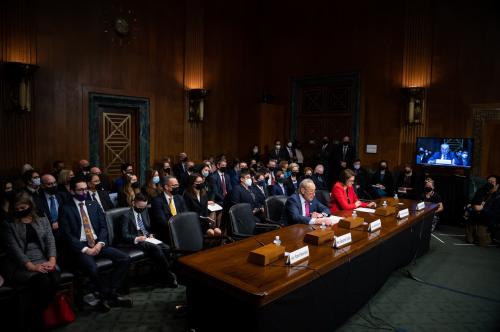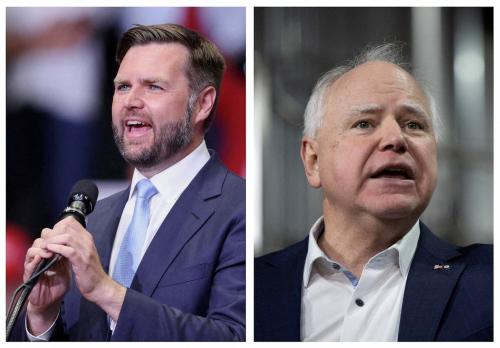Having just celebrated his first decade in power to the tune of a national holiday, Venezuela’s President Hugo Chavez is here to stay. On February 15, he achieved a famous victory in the referendum that he had called to scrap the term limits that would have forced him to relinquish power in 2012. His victory was not exactly a cliffhanger. Nearly 55% of the voters supported the constitutional amendment, in a turnout of more than 70%. This was Chavez’s second attempt at securing unlimited reelection, after a previous referendum in December 2007 narrowly rejected the provision along with a much wider package of amendments, aimed at instituting a Socialist regime.
This is, no doubt, a big triumph for Chavez and a significant setback for the Venezuelan opposition. The result marks a return to Chavez’s winning ways, after the 2007 defeat and the mildly disappointing results of the November 2008 regional elections. In the latter, pro-Chavez parties prevailed in most places, but the opposition captured the country’s 5 largest constituencies, including the capital, Caracas. In light of the recent referendum, however, the inroads made by the Venezuelan opposition in the past two years look less like a turnaround and more like a blip in a lengthy and still uphill road.
Through his increasingly impregnable control over all power levers, but also through his sheer political astuteness, Chavez, like the famous cartoon character “Road Runner”, keeps his chasers one step behind. By calling a referendum so soon after the regional elections and in the face of mounting economic problems, Chavez has shown remarkable determination and sense of timing. He took advantage of an exhausted opposition, exposing its chronic weaknesses in the process. The latter are as serious an obstacle to democratic recovery in Venezuela as Chavez’s own ruthlessness.
Indeed, after languishing for 10 years on the margins of power, the Venezuelan opposition continues to show a limited ability to counter Chavez’s appeal amongst the poor. Moreover, it lacks credible, solid, and viable national leaders. In many ways, Venezuela’s opposition continues to be a footnote in a political system that revolves entirely around Chavez. Their biggest electoral successes throughout this decade –notably the victory in the 2007 referendum—have largely reflected drops in turnout amongst chavista voters.
Chavez’s recent success leaves him in a much stronger political position. The certainty that he will run again in 2012 allows him to hold his political coalition together, countering what had emerged as a big risk in the wake of his defeat in the 2007 referendum. With all quiet on the home front, Chavez will now resume his unceasing campaigning. In fact, it is not unthinkable that he will soon call another referendum to vote on the same constitutional reforms that were rejected by voters 14 months ago. Chavez’s relentless drive for power makes this a distinct possibility. But also his need to keep his political base mobilized and in a state of permanent frenzy à-la-1984 against the perceived enemies of the Revolution.
Yet, for all his strengths, the road ahead is littered with obstacles for the Venezuelan strongman. Some of them deserve particular attention:
- Oil prices have plummeted by more than $110 per barrel from the peaks attained in the summer of 2008. This poses significant challenges to a country in which crude oil and derivates still account for 93% of exports and 50% of State revenue. Some analysts suggest that the current level of public spending can only be sustained with oil prices at twice their current levels of approximately $35 per barrel. While a spending contraction may be inevitable and traumatic, Chavez still has significant leeway to postpone the crunch. Venezuela’s Central Bank closed 2008 with $43 billion in foreign reserves, a figure that excludes a myriad parallel funds controlled by the government, whose size is a matter of conjecture. Last January, the President himself estimated that one of them, the National Development Fund, had $53 billion in hand. Thus, it is not inconceivable that Venezuela’s total reserves approach $100 billion, i.e. more than 2 years worth of imports. It is somewhat ominous, nonetheless, that the Central Bank was recently forced by Chavez to transfer $12 billion to various social programs.
- In the course of one decade, crime has spiraled out of control in Venezuela. The homicide rate has increased from 20 per 100,000 inhabitants in 1998 to 48 in 2008, one of the world’s highest. In Caracas, the figure reaches an incredible 130 murders per 100,000 people (3 times higher than in Baghdad). According to Latinobarometro 2008, a regional survey, 53% of Venezuelans claim to have been victims of crime during the previous year, and 57% rate crime as their top concern, in both cases the highest figures in Latin America.
- Despite its shortcomings, the anti-Chavez opposition is less marginalized than it was a few years ago and controls more power resources. Approximately 45% of the country’s population lives in states or cities governed by the opposition. When compared to the results of the 2006 Presidential election, the returns of the February 15 referendum show a loss of 1 million votes for the chavista camp and a gain of nearly the same amount for the opposition, with similar turnout levels in both cases. Moreover, opposition politicians have learned important lessons after their extremely costly decision of boycotting the 2005 legislative elections, which handed complete control of the National Assembly to Chavez. Whatever their misgivings about the fairness of electoral processes in Venezuela, they will not repeat the same mistake the next time around, in 2010.
- In order to win the recent referendum, Chavez opened the gates of successive reelection not just to himself but to office holders at all levels. This had the immediate effect of raising turnout, but may also have the unintended consequence of politically strengthening the opposition leaders that hold executive office in Venezuela’s largest population centers. This may prove instrumental to the emergence of a viable opposition leader, able to credibly challenge Chavez in 2012 and beyond.
While dark clouds are certainly hanging upon his regime, it would be foolish to underestimate Hugo Chavez. He remains a formidable tactician and a better-than-average strategist. The length and severity of the current economic downturn, and the ability of the opposition to coalesce around a credible leader, will largely determine whether Chavez will ride on to another victory in 2012. In the meantime, judging by the recent results, we now know that the man is not down and, most certainly, not out.


Commentary
Op-edHugo Chavez: A Lame Duck no More
February 18, 2009